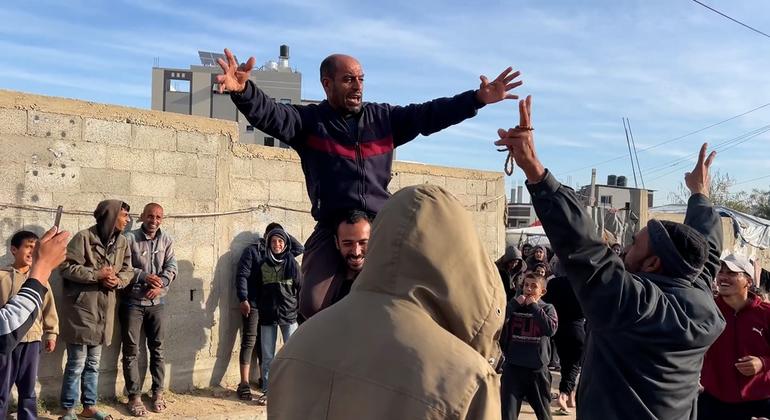The Secretary-General of the United Nations, António Guterres, has expressed satisfaction at the beginning of the ceasefire and the release of hostages in Gaza, a measure that was implemented this Sunday after over 15 months of a devastating conflict. During this period, the Palestinian population has suffered the serious consequences of the confrontation, and Guterres emphasized the organization’s willingness to support the implementation of this ceasefire, as well as to ensure continuity in the delivery of humanitarian aid. However, the Secretary-General warned about the persistence of political and security obstacles that still complicate the delivery of assistance.
The agreement has also led to the release of three Israeli hostages, who were handed over to the Red Cross for their return to Israel. Israel is expected to release around 90 Palestinian prisoners in return. This ceasefire has been the result of negotiations carried out between Qatar, Egypt, and the United States and will be implemented in three phases, starting with six weeks of truce, during which the release of prisoners and a significant increase in humanitarian aid is expected.
Over 630 aid trucks have been sent to Gaza, with at least 300 of them destined for the northern part of the territory. Despite the logistical challenges faced by humanitarian teams, Tom Fletcher, head of the UN Office for the Coordination of Humanitarian Affairs, has emphasized that the safety of civilians and humanitarian workers is a key priority in this effort.
As the ceasefire is observed, many displaced Palestinians have begun to return to their homes to assess the damage caused by the conflict. Shadi Jumaa Abu Sheha, a resident of Nuseirat, described how he found his residence in ruins, although he was relieved by the cessation of hostilities and grateful that his family emerged unharmed from the situation.
Simultaneously, the World Food Programme has begun delivering aid with the mission of preventing a hunger crisis in the region. The program’s executive director, Cindy McCain, has emphasized the importance of keeping all border crossings open to facilitate the flow of vital assistance.
Meanwhile, the World Health Organization has warned of the serious health challenges anticipated after the conflict. To date, over 46,600 people have lost their lives and around 110,000 have been injured, many with permanent injuries. In response to this emergency, WHO has planned a 60-day action plan to address urgent health needs in Gaza.
On the other hand, UN Women has welcomed the ceasefire, emphasizing the importance of including women and girls in reconstruction processes and efforts to achieve lasting peace. The executive director of the organization has expressed hope that this ceasefire will signify a positive change for those who have lived in extreme conditions. Despite progress towards recovery, the Vatican has reiterated the urgency of maintaining the ceasefire and ensuring effective humanitarian access.
Referrer: MiMub in Spanish
